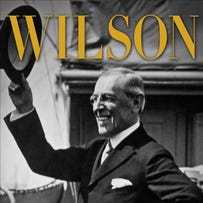Civil War at Roseville in Sydney
It’s a perfectly ordinary Sydney club, and the 20 or so people gathered in its library look altogether typical. But this meeting in Roseville RSL last night was the NSW Chapter of the American Civil War Round Table of Australia gathered to hear John Cook give a paper on intelligence in the Civil War.
Naturally I was thrilled to be with them, invited by a newly discovered cousin Len Traynor, a former painter and decorator who must be the high priest of amateur Civil War historians in Australia. This was confirmed in our opening chat over dinner focusing on the behaviour of the chief executioner Captain Christian Rath, who oversaw the hanging of Lincoln’s assassins. The consensus at our table on Robert Redford’s film The Conspirator (see review under film section) was that it was good enough, despite a few anachronisms – a typed letter was considered the most careless.
John Cook’s paper began with familiar observations about America’s lack of military preparedness in 1861, something that was reflected in approaches to intelligence as much as anything else. There was for example no adequate mapping of the United States. Intelligence gathering had to be improvised on both sides. The sources came to be:
- spies
- scouts
- cavalry reconnaissance
- the other side’s newspapers
- captured mail
- interrogation of prisoners, deserters etc
- balloonists
- and signal corps. observations.
I had not previously heard that the stationmaster in Richmond was a Union spy. Great story in this, must find out more.
Cook drew on a chapter in John Keegan’s Intelligence in War about Stonewall Jackson in the Shenandoah Valley in 1862. Keegan said Jackson’s campaign was a triumph and it was based on superior intelligence. It enabled Jackson to get to Richmond just in time to help Robert E. Lee defeat McClellan’s Union army in the Seven Days’ Campaign.
Cook pointed out that the historian Edwin C. Fishel had only in 1958 located the records of the army of the Potomac relating to the Army’s Bureau of Military Information. It enabled him to produce his book The Secret War for the Union. Before his discovery the story of intelligence was little known.
Two names stand out: Allan Pinkerton the detective who served the Union and chronically overestimated enemy strength, perhaps being responsible for McClellan’s notorious tardiness through the Peninsula Campaign; and James Garfield who was promoted as Brigadier General in the Army of the Cumberland at the age of 31 where his job was to prepare intelligence summaries for General Rosecrans. As you know he was elected president in 1880 and promptly assassinated (to be succeeded by the revered Chester A. Arthur).
I intend to write more on Australia’s Civil War enthusiasts.
Such groups can be set up in each neighbourhood; be given constitutional recognition; elect delegates to a national assembly; be put in charge of curricula; appoint academic staff at universities; assume responsibility for defense policy…the possibilities are endless.
Comments are closed.


Bob, is the last paragraph just to check that we’re awake?
Please excuse my laziness, but have you written a book on the American Civil War? It would be interesting to read a history from an Australian’s perspective, so to speak. I expect there are more than a few parallels to be drawn from the internecine skirmishing within the ALP?
Thank you for reviewing our meeting.
Personally I thought John should have gone into greater depth on some of the spies such as Belle Boyde or Elizabeth Van Lew. Another area of Civil War intelligence was the espionage in foreign nations. I’m sure as you’re aware the Confederates had an entire network of spies and diplomats across Europe. However as John said the topic was very broad and was hence unable to cover all aspects.
Anyway I am glad that you enjoyed it, hope to see you in the future.
Mr Carr – we are one of Australia’s leading importers and distributors of military history titles, including the Civil War. If you would like to get in touch to receive review copies please contact me, Elaine on publicity@capricornlink.com.au.
Perhaps a Commonwealth funded “American Civil War Enthusiast In Every School” program could be set up. After all, it works for the religious nutters.
How about re-enactments in schools? Kids could dress up in uniforms, march around and shoot at things. Perhaps even a bit of horseback riding for the officers, and a few bivouacs each year in the bush. Excellent fun!
Woops, I think I just described cadets.
I’ve met a few Aussies who are really interested in the American Civil War. I don’t get it, but I want to understand. What lessons can Australians learn from this war?
Hey Bob, Pete Cleary Ministerial Driver, (Bob Debus 12 yrs. now ‘Robbo’) have just finished ‘American Scoundrel’ by Tom Keneally, a biography on General Dan Sickles, Fantastic read… Tom’s book “The Great Shame” set me on a journey on my own Anglo/ Irish/ journey including the Irish contribution to both Australia and the USA during the period encompassing the American Civil war.to the extent I have photographed myself outside John Mitchell’s cottage in Bothwell, Tasmania; Thomas Francis Meagher’s house in Ross, Tasmania; His birthplace in Waterford, Ireland; and his statue in St Helena, Montana. Have just received a copy of “The Irish General” by Paul R Wylie, so will post my own ‘Umble opinion later.
Pete, have I a great story for you about my Irish ancestry and Civil War associations. Research not yet complete.